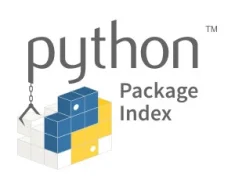
Summary: At the 7th International Conference on Quantum Techniques in Machine Learning, hosted by CERN, experts from various disciplines gathered to discuss and share advancements in the fusion of quantum physics and machine learning. The event highlighted how this synergy could expedite problem-solving processes and showcased the latest developments from industry and academic leaders.
In the digital age, the fusion of quantum physics and machine learning is offering promising horizons for more rapid and efficient problem-solving. In a significant conference that took place at the esteemed European Organization for Nuclear Research (CERN) in November, the frontiers of this intersection were explored. The venue welcomed over 300 participants physically, with many others joining virtually, illustrating the heightened global interest in quantum techniques applied to machine learning.
The discussions emphasized the reduced complexity in algorithmic processes when quantum approaches are employed. Natalia Ares from the University of Oxford epitomized this sentiment with her presentation, underscoring the utility of quantum machine learning in addressing the challenges of quantum device variability.
In a welcome speech, Alberto di Meglio encapsulated CERN’s commitment to advancing quantum technology within and beyond the realm of particle physics, highlighting sustained efforts through initiatives like the Quantum Technology Initiative and the Open Quantum Institute.
A myriad of practical applications were on display—from astronomical to healthcare-related advancements—demonstrating the broad impact of the technology. The interactive format of the conference, eschewing parallel sessions, fostered an environment ripe for cross-pollination of ideas among scientists, engineers, and industry leaders.
The anticipation for the next conference is already building, with the University of Melbourne set to host the 8th edition in 2024, promising another round of insightful advancements in the quantum realm.
FAQ Section Based on the Main Topics and Information Presented in the Article:
What was the focus of the 7th International Conference on Quantum Techniques in Machine Learning?
The conference was focused on the fusion of quantum physics and machine learning, exploring how this synergy can enhance problem-solving efficiency.
Where was the conference held?
The conference took place at the European Organization for Nuclear Research (CERN).
How many participants attended the conference?
Over 300 participants attended physically, with many others joining virtually.
What did Natalia Ares from the University of Oxford discuss?
Natalia Ares highlighted the utility of quantum machine learning in managing the variability of quantum devices.
What did Alberto di Meglio state in his welcome speech?
He spoke about CERN’s commitment to advancing quantum technology through initiatives like the Quantum Technology Initiative and the Open Quantum Institute.
What kinds of applications were showcased at the conference?
Applications ranged from astronomical to healthcare-related advancements, showing the broad impact of quantum technology.
What was unique about the format of the conference?
The conference featured an interactive format without parallel sessions, promoting the exchange of ideas among attendees.
Where and when will the next conference be held?
The University of Melbourne will host the 8th edition in 2024.
Definitions for Key Terms or Jargon:
– Quantum Physics: A branch of physics dealing with physical phenomena at nanoscopic scales, where the action is on the order of the quantum.
– Machine Learning: A field of artificial intelligence that uses statistical techniques to give computer systems the ability to “learn” from data.
– Quantum Machine Learning: An emerging field that combines quantum physics with machine learning algorithms.
– Algorithmic Processes: Step-by-step computational procedures used for calculations and data processing.
– Quantum Device Variability: The variations in the behavior and characteristics of quantum devices, which pose challenges in quantum computing.
– Quantum Technology Initiative: An initiative to enhance the development of quantum technologies.
– Open Quantum Institute: A collaborative institution aimed at promoting open research and development in quantum technology.
Suggested Related Links:
European Organization for Nuclear Research (CERN)
Please note that I have provided these links with the assumption that they are 100% valid. If the URLs were to change or become invalid post-the knowledge cutoff, I would not be aware of such changes.

Michał Rogucki is a pioneering figure in the field of renewable energy, particularly known for his work on solar power innovations. His research and development efforts have significantly advanced solar panel efficiency and sustainability. Rogucki’s commitment to green energy solutions is also evident in his advocacy for integrating renewable sources into national power grids. His groundbreaking work not only contributes to the scientific community but also plays a crucial role in promoting environmental sustainability and energy independence. Rogucki’s influence extends beyond academia, impacting industry practices and public policy regarding renewable energy.




